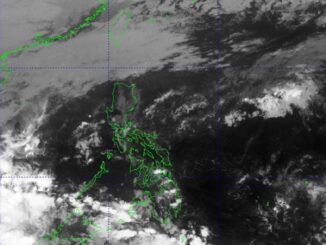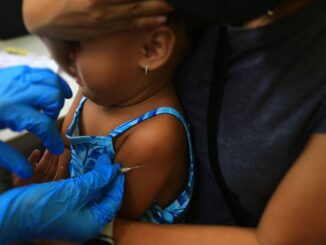
THE International Criminal Court (ICC) cannot do certain “coercive actions,” including arresting and issuing subpoenas against those involved in the Duterte administration’s war on drugs, the Department of Justice (DoJ) said on Saturday.
At a forum in Quezon City on Saturday, Undersecretary Raul Vasquez said that the ICC does not have jurisdiction over the Philippines, being no longer a party to the treaty that created the tribunal.
“This is a free country; anybody, any foreigner, can come in. But as to whether or not they can do certain coercive actions, that cannot be done — that’s illegal,” Vasquez said.
“Once they do that, they would have to face the consequences of being dealt with by the law enforcement agencies,” he added.
Vasquez further clarified: “What are those coercive actions? Can the ICC make an arrest? They cannot. That would be a serious affront to our independence and sovereignty. Issue a subpoena? They’re also not allowed because we are no longer under their jurisdiction,” he added.
The Philippines officially withdrew from the Rome Statute that established the ICC in March 2018, but prosecutors still insisted that it still has legal jurisdiction over the drug-related killings being blamed on former president Rodrigo Duterte and former Philippine National Police chief now Sen. Ronald de la Rosa.
On Thursday, Justice Secretary Jesus Crispin Remulla said that the Philippines would not block the International Criminal Police Organization (Interpol) should it be tapped to implement the ICC’s possible arrest order against the personalities involved in the drug war.
Remulla said that while the Philippines was no longer a member of the ICC, it remained a part of Interpol, which facilitates worldwide police cooperation and crime control.
But the DoJ chief also said that the Philippine government would still “study the possibilities or the implications of dealing with the Interpol on this matter.”
“But we are not in the business of blocking Interpol’s job, which is to fight international crime,” Remulla said.
But Vasquez said that Interpol implementing the ICC’s arrest order in the Philippines “is a very fertile source of discussion” and clarified that the ICC and Interpol are separate bodies.
Should Interpol implement an arrest order in the Philippines, Vasquez said this would still undergo a process.
“The system in place is that law enforcement units request assistance in enforcing a WOA (warrant of arrest), which was issued by judicial authorities of the requesting country,” Vasquez said.
“Now, if a party or country requested their counterparts to enforce that, this would undergo the proper process,” he added.
Earlier, Solicitor General Menardo Guevarra said they could not stop the ICC from investigating people it considers suspects in its drug war case.
Guevarra said the ICC prosecutor could come to the Philippines and interview suspects if required.
“The Philippine government cannot stop him from proceeding any way he wants. He can directly interview persons of interest online, through phone, by email, face to face, subject to the consent of these persons,” Guevarra said.
“But the ICC prosecutor cannot expect that the Philippine government will facilitate it for him,” he added.
Quiboloy, Teves
Meanwhile, Vasquez called on fugitives Pastor Apollo Quiboloy and former lawmaker Arnie Teves to surrender and face the charges against them.
“That’s why we have the same appeal to former Rep. Arnie Teves and Pastor Quiboloy that if possible, they should face the complaints against them and prove it if there is really evidence,” Vasquez said.
The DoJ official assured them that the justice system was working in the Philippines, where an accused was given a fair trial.
“This is the best evidence, just like what happened to [former] senator [Leila] de Lima. That is proof that the wheel of justice in the Philippines is working,” Vasquez said.
“The wheel of justice may be grinding slowly, but it does function,” he added.
Teves is facing multiple criminal charges related to the killing of former Negros Oriental governor Roel Degamo in March 2023. He is also facing several other charges related to a series of killings in 2019.
Teves was arrested in Timor Leste while playing golf at the Top Golf Driving Range and Bar in March of this year.
On the other hand, President Ferdinand Marcos Jr. earlier challenged Quiboloy to show up and face the accusations against him.
Quiboloy is facing sexual abuse and trafficking charges. The cases were transferred from the regional trial courts of Davao and Pasig cities to the Quezon City court.





Be the first to comment